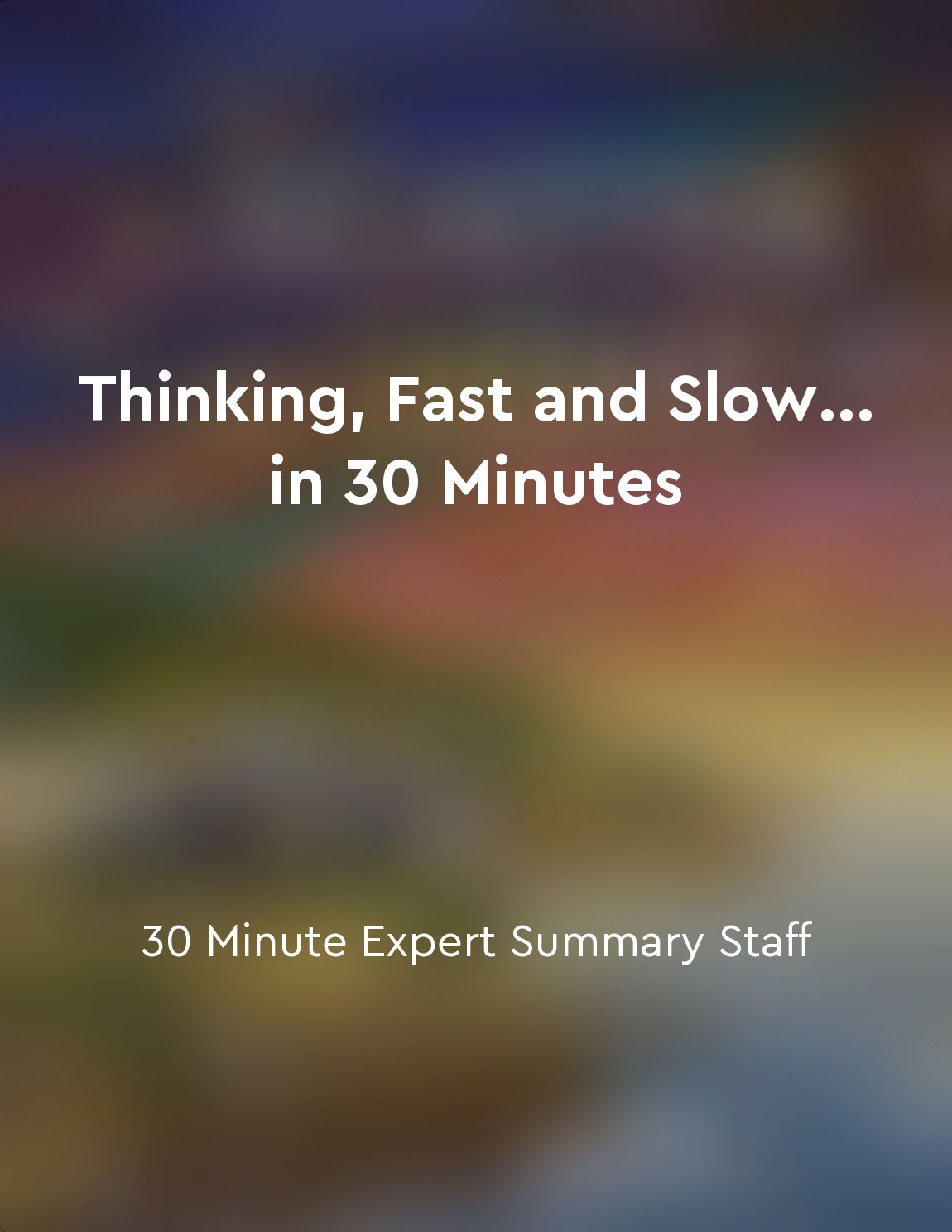Audio available in app
Heuristics provide mental shortcuts from "summary" of Thinking, Fast and Slow... in 30 Minutes by 30 Minute Expert Summary Staff
Heuristics, as described by Kahneman, are mental shortcuts that help individuals make decisions quickly and efficiently. These shortcuts allow people to bypass the effortful process of weighing all available information and considering every possible outcome before making a choice. Instead, heuristics provide a simpler way to arrive at a decision by relying on certain rules of thumb or patterns that have proven to be effective in the past. One common heuristic is the availability heuristic, which involves making judgments based on how easily examples come to mind. When faced with a decision or problem, individuals may rely on this heuristic by recalling instances that are readily available in memory, rather than conducting a comprehensive search for all relevant information. This simplifies the decision-making process, but it can also lead to biases and errors if the examples that come to mind are not truly representative of the situation at hand. Another frequently used heuristic is the representativeness heuristic, which involves making judgments based on how closely an individual or event matches a particular prototype or stereotype. By categorizing new information into familiar patterns, individuals can quickly draw conclusions without having to analyze every detail. While this can be a useful way to make decisions efficiently, it can also result in overlooking important nuances or making faulty assumptions based on superficial similarities.- Heuristics serve as valuable tools for navigating the complexities of everyday decision-making. By providing mental shortcuts that streamline the process of choosing between options, heuristics help individuals conserve cognitive resources and make timely choices. However, it is important to recognize the limitations of heuristics and be mindful of the potential for biases and errors that can arise when relying too heavily on these mental shortcuts. By understanding how heuristics work and being aware of their influence on decision-making, individuals can make more informed choices and avoid common pitfalls that stem from cognitive shortcuts.


